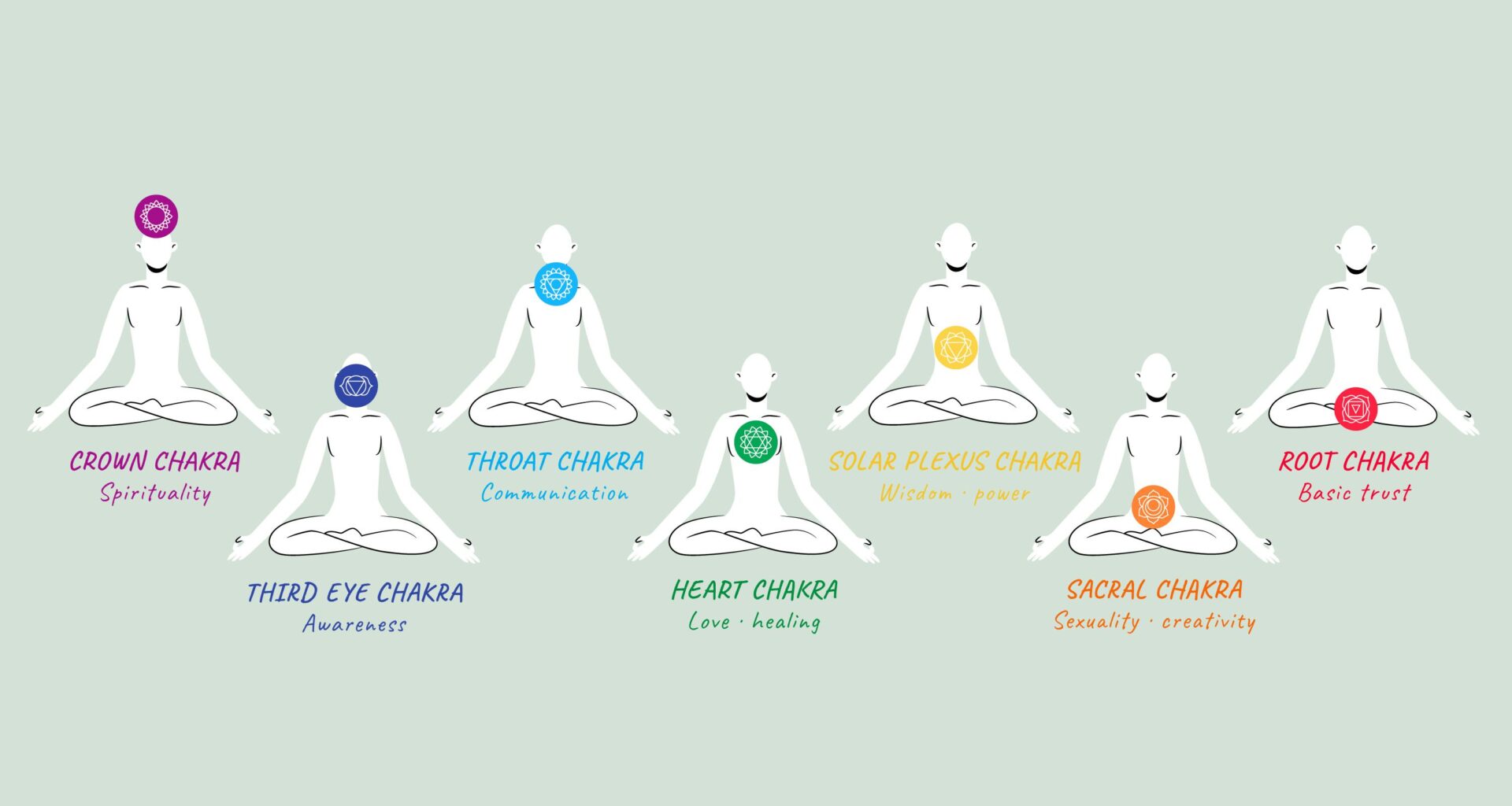Meditation is an ancient practice that involves training the mind (and body) to achieve a mentally clear, physically relaxed and emotionally calm state. It encompasses various physical and mental techniques aimed at focusing attention, promoting relaxation, and enhancing self-awareness. Although meditation is often used for stress reduction and spiritual growth, it is actually a holistic approach to well-being with a range of physical and mental health benefits.

Types of Meditation
There are many different types of meditation for you to choose from, and each one offers unique benefits and comprises different techniques for cultivating mindfulness, inner peace, and spiritual growth.
Concentrative Meditation
Concentrative meditation involves focusing the mind on a single point of reference. This point can be the breath, a specific word or phrase (mantra), a visual object, or even a sensation in the body. The primary goal of concentrative meditation is to cultivate deep concentration and mental clarity. By directing attention to a single point, practitioners aim to quiet the mind and reduce distractions. This type of meditation is often used as a precursor to other meditation practices, as it helps train the mind to maintain focus and awareness.
Mindfulness Meditation
Mindfulness meditation is rooted in the practice of mindfulness, which involves being fully present in the moment and observing thoughts, feelings, and sensations without judgement. The key principles of mindfulness include acceptance, non-reactivity, and compassion towards oneself and others. During mindfulness meditation, practitioners focus on their breath or bodily sensations and gently observe any thoughts or emotions that arise, allowing them to come and go without getting caught up in them. This practice enhances self-awareness, emotional regulation, and overall well-being by fostering a deep connection to the present moment.
Specific Meditation Types
- Loving-Kindness Meditation: Also known as Metta meditation, loving-kindness meditation involves cultivating feelings of compassion, love, and goodwill towards oneself and others. Practitioners typically repeat phrases or affirmations that express kindness and well-wishes, gradually expanding the circle of compassion to include loved ones, acquaintances, and even difficult individuals. This practice promotes empathy, reduces negative emotions like resentment and hostility, and fosters a sense of interconnectedness with all beings.
- Transcendental Meditation (TM): Transcendental meditation is a technique that involves the use of a specific mantra, or sound, to achieve a state of deep relaxation and heightened awareness. During TM, practitioners silently repeat their mantra, allowing it to guide their attention inward. The goal is to transcend ordinary thought and experience a state of pure consciousness, characterised by inner calm and clarity. TM is known for its simplicity and accessibility, making it suitable for individuals of all backgrounds and beliefs.
- Guided Meditation: Guided meditation involves following the verbal guidance of a teacher or recording, who leads the practitioner through a series of visualizations, affirmations, or relaxation techniques. This type of meditation is especially helpful for beginners or those who find it challenging to meditate on their own. Guided meditations can focus on various themes, such as stress reduction, self-love, healing, or personal growth. They provide structure and support for the meditation practice, helping individuals deepen their relaxation and inner exploration.
Read More: Types of Relationships
How to Practice Meditation
- Find a quiet space: Choose a peaceful environment where you can sit comfortably without distractions. It can be a dark or bright place as per your preference and comfort.
- Choose a technique: Select a meditation technique that resonates with you, whether it’s focused attention on the breath, mindfulness of sensations, or repeating a mantra.
- Set a timer: Start with a manageable duration, such as 5-10 minutes, and gradually increase as you become more comfortable with the practice.
- Sit comfortably: Adopt a relaxed posture, keeping your spine straight but not rigid. You can sit on a cushion or chair, whichever is more comfortable for you. You can also choose to close your eyes if it helps you focus or you are opting for a visual meditative practice.
- Focus your attention: Direct your attention to the chosen object (in your line of sight) or anchor (e.g. your breaths) of your meditation. Be mindful of when you get distracted or your thoughts wander, and gently bring your mind back to your point of focus.
- Conclude with Kindness: As you conclude your meditation, allow yourself to gently lift your gaze or softly open your eyes if they were closed. Take a moment to become aware of the sounds around you and the sensations in your body. Notice any thoughts or emotions that arise with kindness and acceptance.
- Be patient and consistent: Meditation is a skill that develops with practice. Be patient with yourself and commit to regular practice to experience its benefits.
Here is a guide for beginners that you can follow to get started:
Read More: Poverty and Teenage Pregnancy
Impact of Meditation
Meditation offers a myriad of benefits, including reduced stress levels, improved sleep quality, enhanced emotional well-being, better focus and concentration, and increased self-awareness. By activating the body’s relaxation response, meditation helps individuals cope with stress more effectively, leading to a calmer mind and improved sleep patterns. Regular practice fosters emotional resilience and equanimity, allowing individuals to navigate their emotions with greater ease. Moreover, meditation trains the mind to sustain attention and resist distractions, leading to heightened focus and productivity. Through introspection and observation without judgement, individuals develop a deeper understanding of themselves, facilitating personal growth and holistic well-being.
What Does Meditation Do to the Brain?
Research indicates that meditation can bring about significant changes in both the structure and function of the brain. Studies have shown that regular meditation practice can lead to increased grey matter density in brain regions associated with memory, learning, and emotional regulation, suggesting potential improvements in cognitive function and emotional well-being. Additionally, meditation has been found to modulate neural pathways related to attention, empathy, and self-awareness, leading to enhanced abilities in these areas. These findings highlight the transformative effects of meditation on the brain, underscoring its potential to promote mental resilience, emotional intelligence, and overall cognitive health.
Read More: Generation Z’s Mental Health Issues
Tips for Meditating
- Create a comfortable and quiet meditation space free from distractions.
- Start with short sessions and gradually increase the duration.
- Set a consistent meditation schedule to establish a routine.
- Practise regularly to cultivate a habit of mindfulness and reap the benefits over time. Be patient and persistent, understanding that progress may come gradually.
- Incorporate mindful breathing exercises throughout your day to stay grounded.
- Practice self-compassion and forgiveness, acknowledging that meditation is a journey with ups and downs. Be gentle with yourself and let go of expectations.
- Stay open-minded and curious, exploring different types of meditation and new techniques or approaches to deepen your practice.
- Use guided meditation apps or recordings to support your practice.
- Seek support from meditation groups, classes, or online communities for guidance and encouragement.
- Remember that meditation is a personal journey, and there is no right or wrong way to practise—find what resonates best with you. Experiment with different techniques and types of meditation to find what works best for you.
Potential Pitfalls
- Struggling with intrusive thoughts or restlessness.
- Feeling discouraged if progress seems slow.
- Overestimating the immediate effects and expecting instant results.
- Getting caught up in judgement or self-criticism when thoughts or emotions arise.
- Feeling overwhelmed by the pressure to “do it right” or achieve a certain outcome.
- Neglecting self-care practices outside of meditation, such as proper nutrition, exercise, and sleep, which can impact your overall well-being and meditation experience.
Read More: Social Media Impacts Gen Z’s Mental Health
Conclusion
In conclusion, meditation is a powerful tool for enhancing overall well-being, promoting mental clarity, and cultivating inner peace. Practitioners may choose to explore different forms of meditation based on their preferences, intentions, and individual needs. Ultimately, the diversity of meditation practices reflects the richness of human experience and the endless possibilities for awakening to our true nature. By incorporating different types of meditation into your routine and practising regularly with patience and persistence, you can harness its transformative potential to lead a more balanced and fulfilling life.
FAQs
Meditation is a practice that involves training the mind to achieve a state of mental clarity and emotional calmness through various techniques aimed at focusing attention, promoting relaxation, and enhancing self-awareness.
The main point of meditation is to cultivate mindfulness, which involves being fully present in the moment, observing thoughts and sensations without judgement, and developing a greater sense of self-awareness and inner peace.
To meditate daily, set aside a specific time and place for your practice, start with short sessions, experiment with different techniques, stay consistent, and be patient with yourself as you cultivate a habit of mindfulness over time.





